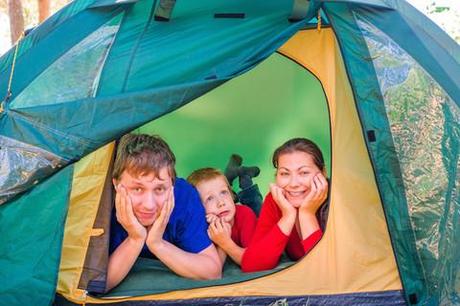
Prepping is a lifestyle choice. And in this era of unparalleled abundance, you could have a hard time convincing family members of the need to prepare for potential emergencies or disaster scenarios. You will likely find that people who are comfortable don't want to think too hard about having to do without the many goods and services they currently enjoy. And yet, prepping can ensure that your family members continue to enjoy the lifestyle to which they've become accustomed, even in the event of a natural disaster, illness, injury, or job loss. It's a matter of personal responsibility and common sense. So why is it so hard to get your family on board? Perhaps you're simply approaching it the wrong way. Here are some strategies that you might want to try when it comes to convincing people that prepping is both necessary and a priority.
Take Baby Steps
Part of the problem with trying to get family members and friends on board with the prepping lifestyle is that they may focus on the portions they don't agree with. Most people can see the wisdom in having extra food and water on hand in the event of a natural disaster, but they may not buy into the likelihood of a massive Ebola outbreak or a government collapse. So you need to go slowly and let them come around. Start by convincing them of the wisdom of preparing for setbacks that the average person can accept as probable before moving on to the situations that exist more within the realm of possibility.
Use Real-World Examples
You don't have to look far to find examples where prepping would have saved people a lot of heartache, and possibly even saved lives. Perhaps the two most pertinent examples in recent history are Hurricane Katrina and the Great Recession. The former gave a lot of people insight into the terrible outcome of an unexpected natural disaster of epic proportions. And whether your area is prone to flood, fire, earthquake, hurricane, tornado, or some other form of natural disaster, you don't want to be the family stuck at home without access to food, water, heat, or medical care. And you also don’t want to end up totally reliant on temporary government assistance in an unsafe location. After the economic events of recent years, perhaps it’s even easier to imagine extended job loss. In either scenario, prepping could make a huge difference in your family's ability to survive and stay comfortable.
Equate Prepping to Other Types of Planning
If your family members have home and auto insurance policies and/or they contribute to retirement accounts, you have a logical foothold for discussing prepping. Simply ask them why they have such measures in place. More likely than not, they will answer that they want to be prepared and protected in the event of unforeseen circumstances (such as accident, illness, or injury), and that they want to continue to enjoy the lifestyle to which they have become accustomed, even when they retire and they're no longer able to work. These are some of the same reasons that people begin prepping, so you can meet them on common ground.
Run the Numbers
When you sit down and calculate how much money you spend keeping your household afloat, not to mention the supplies you go through daily, weekly, monthly, and yearly, you can show your family and friends just how much you need to have stocked up in case of job loss lasting for several months, an illness that leaves you bed-ridden, or a natural disaster that cuts you off from essential services for days or even weeks.
Show How Easy It Is
One common reason that people balk before embarking on the path of preparedness is that it looks like an awful lot of extra work to add to an already strained schedule. But it's really not that difficult when you think about it. For example, if you're stocking up on water or non-perishable food items, simply buy extra during your regular shopping trips as a way to get started. If you hold out for sales and clip coupons, you don't even need to spend a ton of extra money. And when you are organized in your efforts from the get-go, it's easy to scale up as you go.
